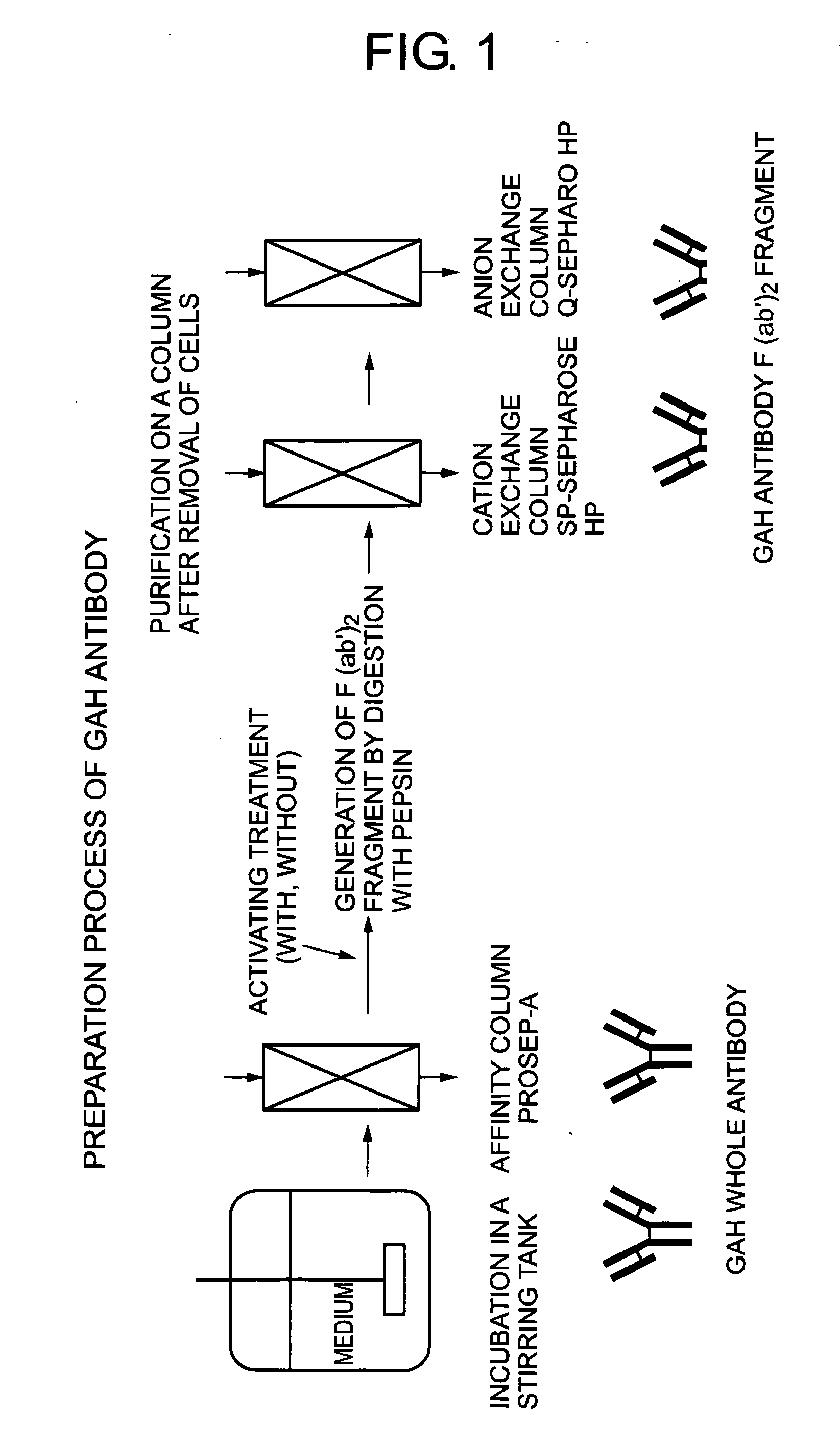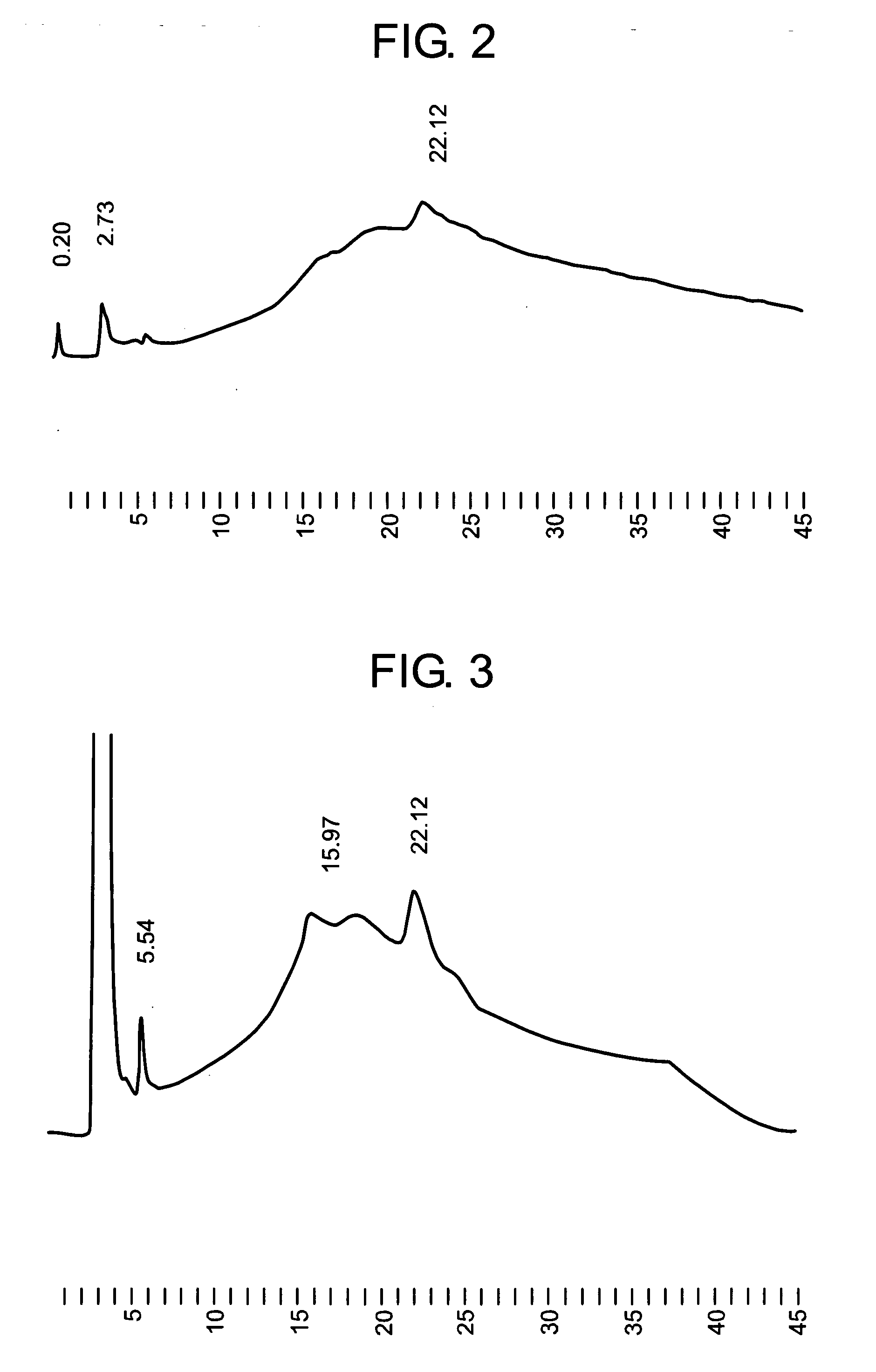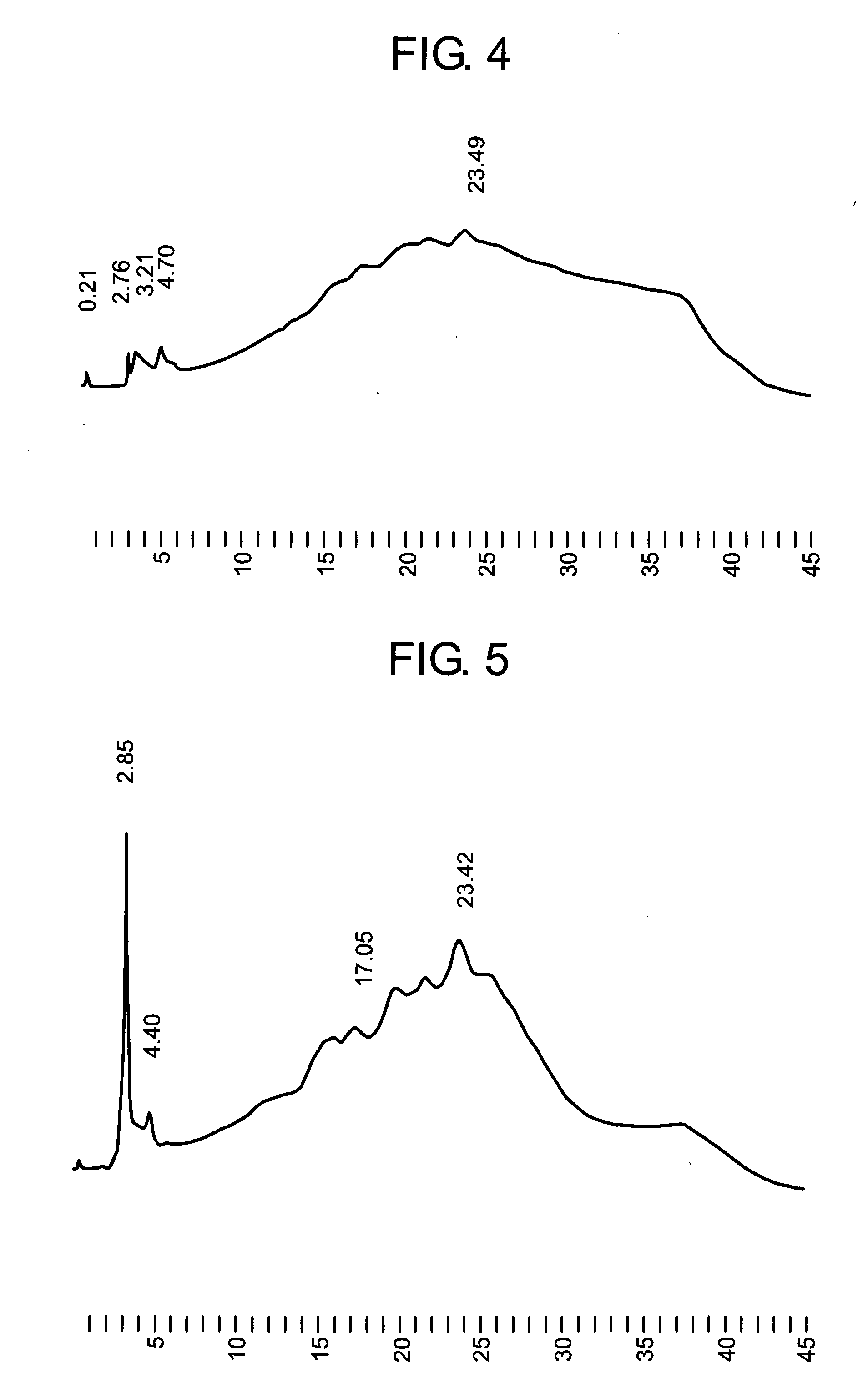Method of activating protein
- Summary
- Abstract
- Description
- Claims
- Application Information
AI Technical Summary
Benefits of technology
Problems solved by technology
Method used
Image
Examples
example 1
Production of the Whole Antibody of a GAH Antibody (which will Hereinafter be called “GAR whole antibody”) in a medium by serum-free culture
[0105] Culture media for cells were prepared by dissolving 4 mmol of glutamine (product of Sigma-Aldrich) and 10 mg of insulin (product of Sigma-Aldrich) in CD CHO (product of Invitrogen Corporation) and ExCell325-PF (product of JRH Bioscience) used serum-free media, respectively, followed by sterile filtration through 0.22 μm of a bottle top filter (product of Corning Costar). Each of the cell media thus prepared was aseptically charged in a 1 L spinner flask (product of Bellco Glass) which had been sterilized in advance in a high-pressure steam sterilizer (product of Sakura Seiki). The flask was then placed in a culture control apparatus (product of Biott) and treated under the following conditions: temperature of 37° C., dissolved oxygen concentration of 3.0 mg / l, pH 7.4 and rotation speed of agitator at 60 rpm.
[0106] Recombinant GAH antibo...
example 2
Purification of a GAH Whole Antibody from the Unpurified Bulk Obtained by Serum-Free Culture
[0108] About 800 ml of each unpurified bulk obtained in Example 1 was divided into two portions. They were each purified by column chromatography by using “XK16 column (i.d. 16 mm, product of Amersham Biosciences) filled with Prosep-A resin (product of Millipore) up to a height of 14.3 ml of the column. The unpurified bulk and buffer were fed to the column at a flow rate of 14.3 ml / min with downflow for application and washing and upflow for elution and regeneration. The buffer solutions used for washing, elution and regeneration were 40 mM acetate buffers containing 40 mM NaCl and having a pH of 6.0, 4.0 and 2.7, respectively.
[0109] From the unpurified bulks of CD CHO and ExCell325-PF, 47.2 ml and 50.8 ml of whole-antibody-containing solutions (pH 4.0) were obtained. These solutions contain the antibody in an amount of 57 mg and 48 mg, respectively as a result of ultraviolet absorptiometry...
example 3
Analysis of GAH Whole Antibody by HPLC
[0111] To about 10 μl (equivalent to 50 μg) of the GAH whole antibody produced in the CD CHO medium, a reagent was added so that the composition would be finally a 30-mM tris HCL buffer (pH 9) containing 0.1 mM L-cysteine, whereby the total amount became about 40 μl. After the mixture was allowed to stand for 16 hours at room temperature, trifluoroacetic acid was added to adjust its pH to 4. The mixture was concentrated by “Microcon YM-10” (product of Amicon) to convert its liquid composition to 0.05% acetic acid. The resulting liquid was subjected to cation exchange liquid chromatography using TSK gel CM-5PW (inner diameter: 7.5 mm, length: 7.5 cm; product of TOSOH).
Operation Conditions:
[0112] Detector: ultraviolet absorptiometer (wavelength measured: 280 nm) [0113] Column: TSKgel CM-5PW (inner diameter: 7.5 mm×length: 7.5 cm) product of TOSOH [0114] Column temperature: a fixed temperature around 30° C. [0115] Flow rate: 1.0 ml / min [0116] M...
PUM
| Property | Measurement | Unit |
|---|---|---|
| Composition | aaaaa | aaaaa |
| Biological properties | aaaaa | aaaaa |
Abstract
Description
Claims
Application Information
 Login to View More
Login to View More - R&D
- Intellectual Property
- Life Sciences
- Materials
- Tech Scout
- Unparalleled Data Quality
- Higher Quality Content
- 60% Fewer Hallucinations
Browse by: Latest US Patents, China's latest patents, Technical Efficacy Thesaurus, Application Domain, Technology Topic, Popular Technical Reports.
© 2025 PatSnap. All rights reserved.Legal|Privacy policy|Modern Slavery Act Transparency Statement|Sitemap|About US| Contact US: help@patsnap.com



